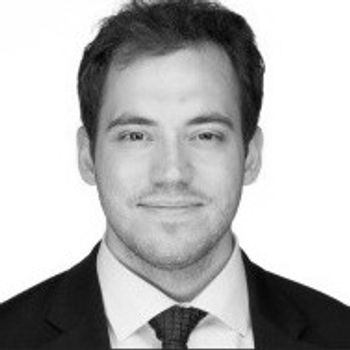Anti-Israel Columbia prof who helped soften discipline rules for protesters praises terrorists who hijack planes
‘What's remarkable about the historical footage from this thing is the way that the PFLP hijackers are helping people off the airplane and taking them over to tables to eat,’ he said.
‘There is no place in the reporting in the 1970s where any of the people who are doing the hijackings are called terrorists. They're called guerrillas, they're called liberation fighters, they're called liberation movements,’ he added.
A Columbia University professor who helped soften punitive measures for disruptive protesters recently expressed his seeming approval of terrorist plane hijackings.
Joseph Slaughter, a professor of English and Comparative Literature, made his comments at an Oct. 9 Columbia event about “Hijacking Human Rights,” according to The Washington Free Beacon, which obtained audio of Slaughter’s remarks.
Speaking of a hijacking carried out by the Marxist terrorist group, the Popular Front for the Liberation of Palestine (PFLP), Slaughter said: “I’d like to show you what a hijacking looked like in 1972. A PFLP hijacking, a Palestinian hijacking in 1972, where the PFLP hijackers, nobody dies except one of the hijackers. . . . What’s remarkable about the historical footage from this thing is the way that the PFLP hijackers are helping people off the airplane and taking them over to tables to eat.”
[RELATED: GOODBYE!: Instagram kicks terrorist-loving SJP account at CSULA off platform]
“There is no place in the reporting in the 1970s where any of the people who are doing the hijackings are called terrorists. They’re called guerrillas, they’re called liberation fighters, they’re called liberation movements,” he added.
In his earlier paper, “Hijacking Human Rights: Neoliberalism, the New Historiography, and the End of the Third World,” which the event description mentioned, Slaughter wrote that a “number of spectacular airline hijackings … provoked the development of a new international individualist discourse on terrorism,” according to the Beacon.
Slaughter is a member of Columbia’s Rules of University Conduct Committee, which has the mission to “review and recommend revision of rules of University conduct, as well as the means of enforcing those rules.”
The Beacon noted that the committee, with Slaughter’s support, implemented new regulations that make it easier for activists to launch disruptive protests and reduce the penalties for protesters who break school rules.
Slaughter told Campus Reform: “I did not, and do not, glorify airplane hijacking, by anyone. The word ‘spectacular’ in the talk (and the academic essay from which it is drawn) referred to the media spectacle created around the hijackings of the early 1970s (of which there were hundreds), not to valorization, justification, praise, or approval of the hijackings or hijackers. I used ‘spectacular’ in the dictionary sense of the word (’relating to, or being, a spectacle’), not in a colloquial sense of being ‘good.’”
He alleged that the Beacon article “is full of misrepresentations and factual inaccuracies, including (among many) extracting words such as ‘spectacular’ from the context in which they appear in a scholarly essay, creating a dishonest impression of my work.”
Campus Reform has reached out to Columbia for comment. This article will be updated accordingly.

